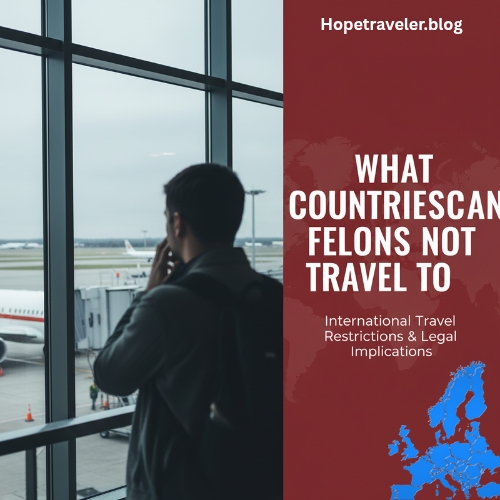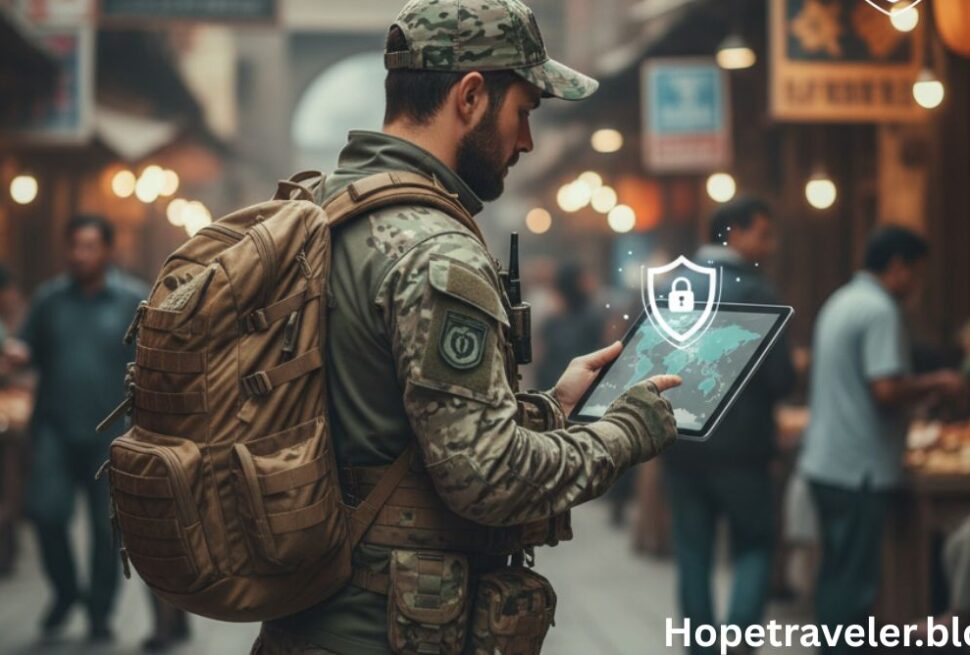Traveling internationally requires meeting the immigration and security standards of each destination country. While many travelers pass through immigration checkpoints smoothly, individuals with a criminal history—particularly felony convictions—may face restrictions. This raises an important question: What countries can felons not travel to?
According to Wikipedia, travel is the movement of people between geographical locations for leisure, business, or other purposes. However, governments reserve the right to deny entry to foreign nationals if they believe the person may pose a security, legal, or social risk. For felons, this means some countries either restrict or completely ban entry based on the nature of the conviction.
Why Countries Restrict Felons
There are several reasons why certain countries do not allow entry to people with felony convictions:
- Public Safety Concerns – Countries may fear that individuals with serious criminal records could commit crimes while visiting.
- Immigration Laws – Many nations have immigration policies that automatically disqualify travelers with convictions above a certain severity.
- International Relations – Agreements between countries sometimes require sharing criminal history information.
- Moral and Cultural Values – Some countries enforce strict moral laws and deny entry to individuals whose past actions violate those standards.
Not every felony leads to a travel ban, but serious crimes such as drug trafficking, violent offenses, sexual crimes, and terrorism-related charges are more likely to result in travel restrictions.
Countries with Strict Entry Restrictions for Felons
1. Canada
Canada has one of the strictest immigration policies regarding felons. Even a single DUI (Driving Under the Influence) conviction can make someone “criminally inadmissible.” Felons need to apply for a Temporary Resident Permit (TRP) or Criminal Rehabilitation to enter.
2. United Kingdom
The United Kingdom restricts entry for travelers who have served prison sentences of 12 months or more. Individuals with shorter or older convictions may be allowed entry, but they may face questioning and additional screening at the border.
3. Australia
Australia requires all visitors to pass a Character Test. Anyone with a substantial criminal record—defined as 12 months or more in prison—can be denied entry. Immigration officers make case-by-case decisions based on the type of conviction.
4. New Zealand
Similar to Australia, New Zealand enforces strict entry laws. A prison sentence of five years or more automatically makes a person ineligible to visit. Even shorter sentences can cause problems if served in the past decade.
5. Japan
Japan denies entry to individuals who have been sentenced to one year or more in prison. The country also restricts those with drug-related convictions, even if they were minor offenses.
6. China
China reserves the right to refuse entry to individuals with criminal records. Although enforcement varies, serious felonies and drug convictions are likely to result in rejection.
7. United States
While this article focuses on where felons from other countries cannot travel, it’s important to note that the United States itself also restricts entry. Foreign nationals with serious criminal records may be denied a U.S. visa.
Countries with Partial or Case-by-Case Restrictions
Some countries don’t have blanket bans but assess travelers individually:
- Mexico – Officially, felons may be denied entry, especially for drug or violent crimes. However, enforcement varies depending on border agents.
- South Africa – Entry can be refused if an applicant fails to disclose a criminal record when applying for a visa.
- United Arab Emirates (UAE) – Minor convictions may not matter, but serious crimes like drug offenses or fraud can result in denial.
- India – Felons may face restrictions depending on the severity of the offense.
These countries may still admit felons if enough time has passed or if legal waivers are granted.
Countries Where Felons Can Travel Freely
On the other hand, many countries do not check for criminal records or have no formal restrictions. For example:
- Most Caribbean nations allow U.S. felons to enter without much difficulty.
- South American countries like Brazil, Chile, and Argentina typically do not bar felons from visiting.
- Parts of Southeast Asia, including Thailand and Indonesia, usually don’t enforce restrictions unless the traveler poses a current threat.
However, travelers should always check the latest immigration requirements, as rules can change.
Factors That Influence Travel Restrictions
Not all felonies are treated equally. Several factors determine whether a felon can travel internationally:
- Type of Felony – Non-violent crimes may be treated more leniently than violent or drug-related crimes.
- Sentence Length – Longer prison terms raise red flags.
- Time Passed Since Conviction – Some countries overlook older convictions.
- Purpose of Travel – Business, family visits, or tourism may affect decisions.
- Visa Requirements – Countries that require visas often conduct deeper background checks.
How Felons Can Improve Chances of Travel
Even with restrictions, felons can take steps to improve their chances of international travel:
- Apply for waivers or permits – Many countries allow special applications for travelers with records.
- Obtain legal rehabilitation – Canada, for example, offers a Criminal Rehabilitation program.
- Be honest on applications – Lying about a record can result in lifetime bans.
- Seek legal advice – Immigration lawyers can help navigate complex cases.
Why Felons Should Research Before Traveling
Planning is essential for felons who want to travel. Immigration laws vary widely and may change over time. A country that allowed entry yesterday may impose restrictions tomorrow. Checking official embassy websites and verifying entry requirements before booking flights prevents unnecessary issues.
Conclusion
So, what countries can felons not travel to?
Strict nations like Canada, the United Kingdom, Australia, New Zealand, Japan, and China are among the toughest when it comes to criminal records. Others, like Mexico, South Africa, and the UAE, enforce restrictions on a case-by-case basis. Meanwhile, many regions—including much of South America and the Caribbean—remain accessible to felons.
Ultimately, the ability of a felon to travel depends on the type of conviction, time served, and destination country’s policies. With preparation, honesty, and sometimes legal assistance, international travel may still be possible for individuals with a criminal past.
Travel offers personal growth and new experiences, but for felons, it requires careful planning and awareness of global immigration rules.




